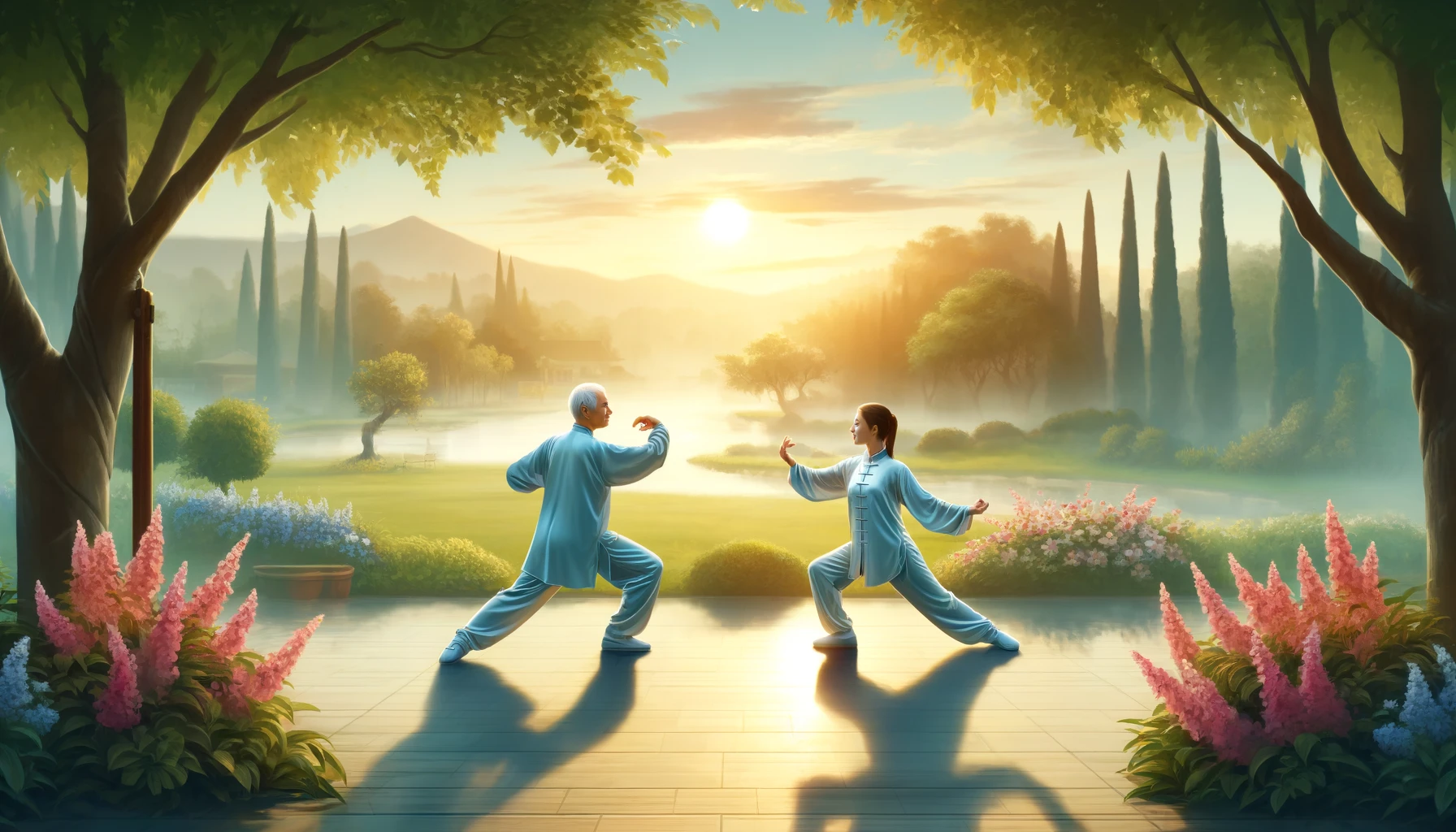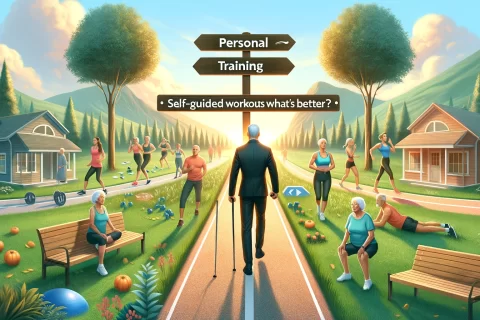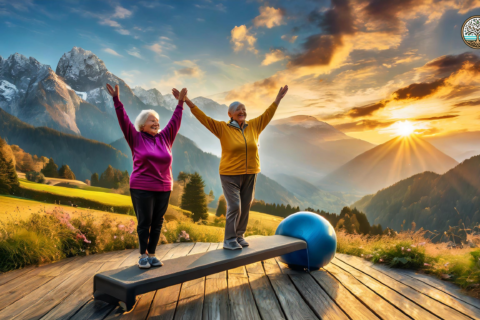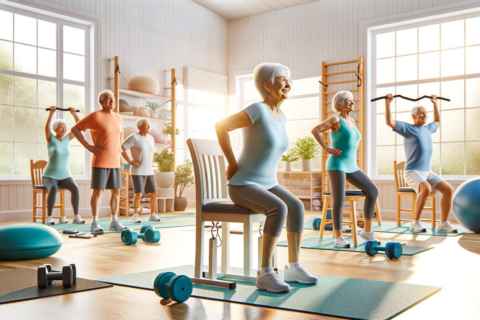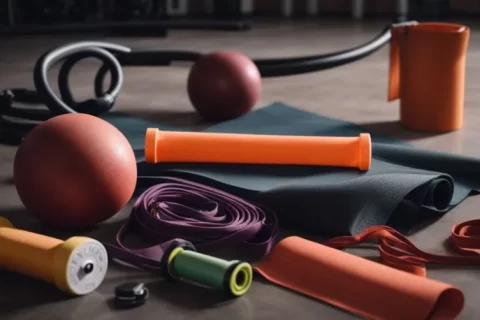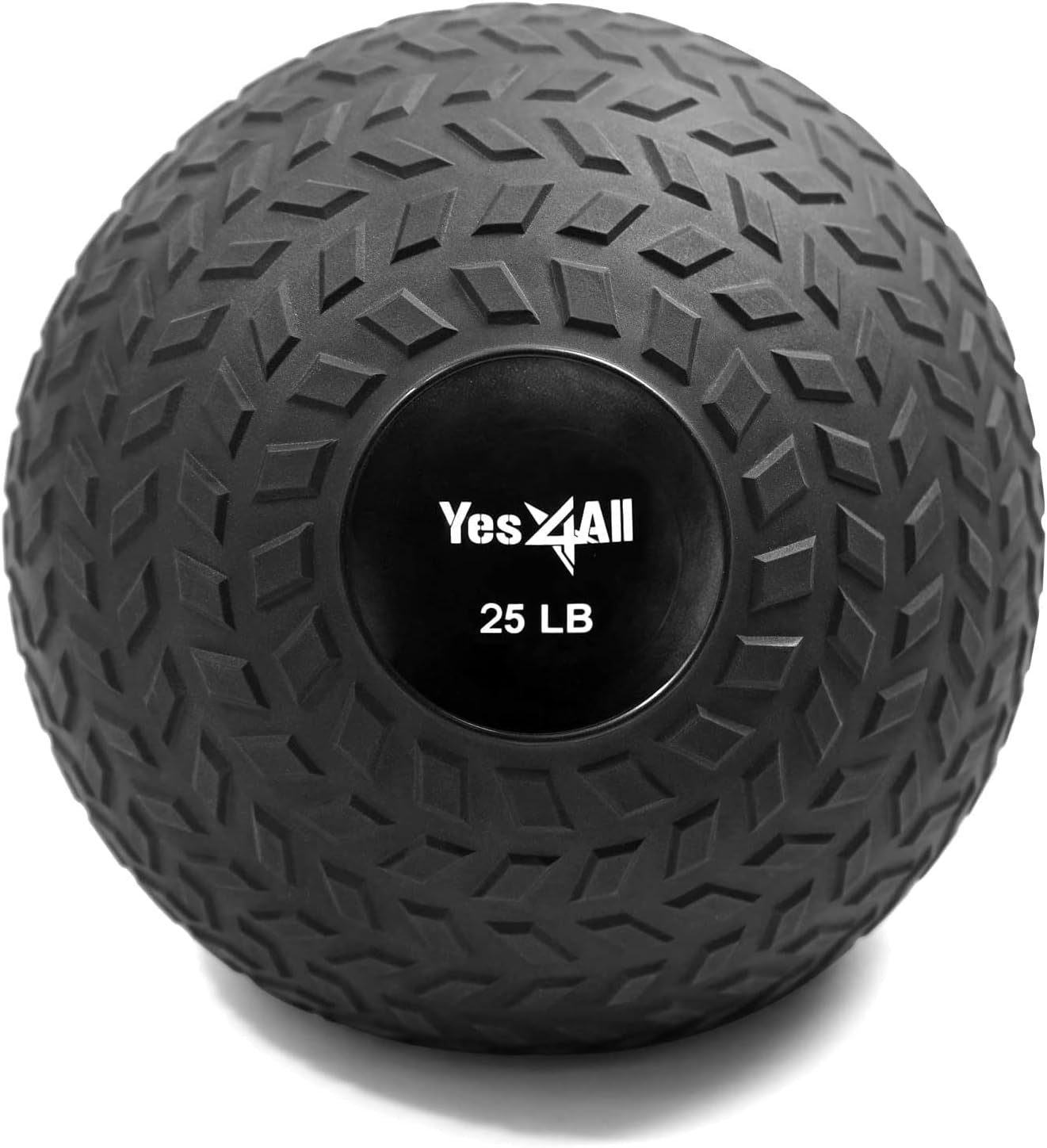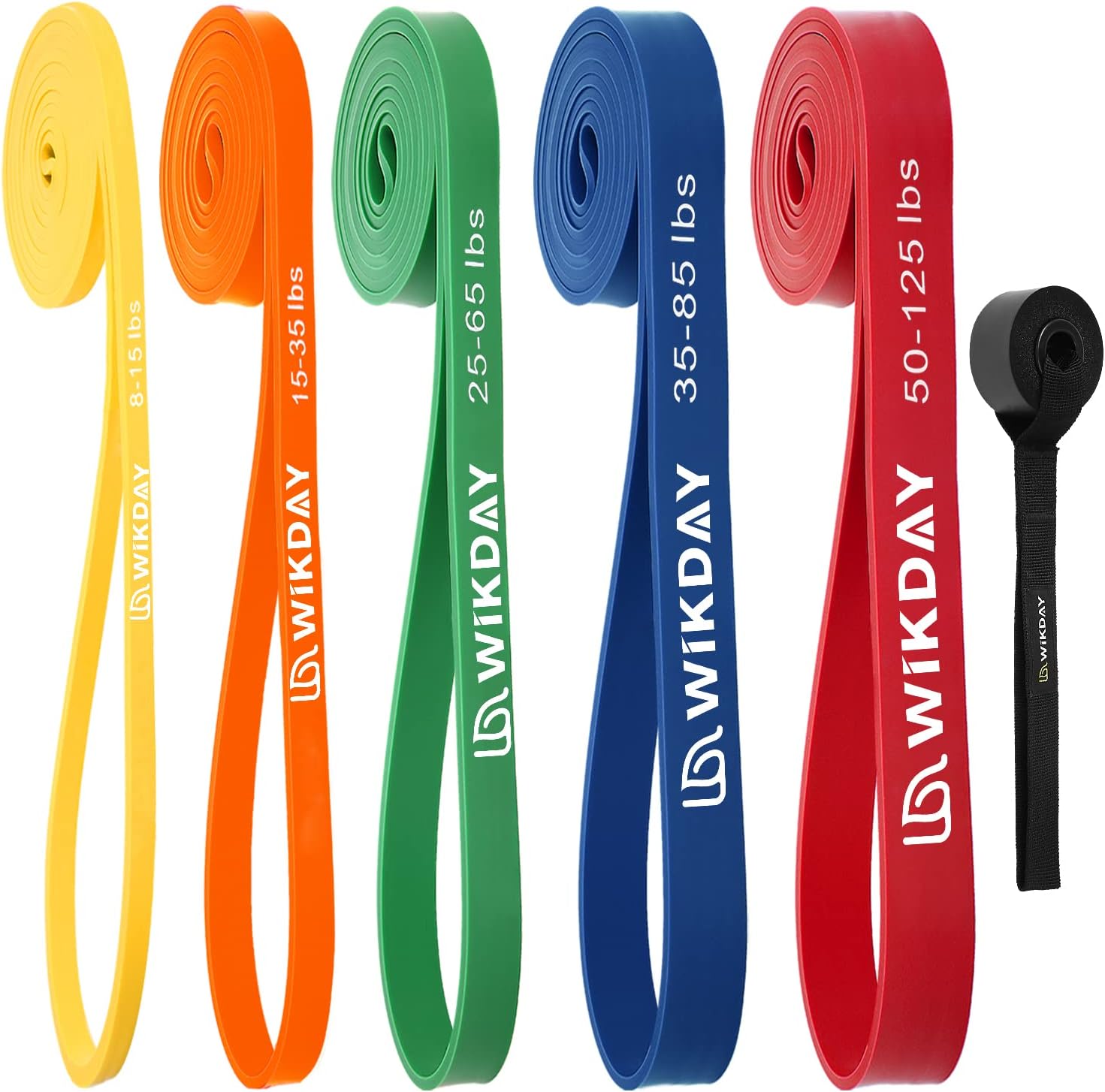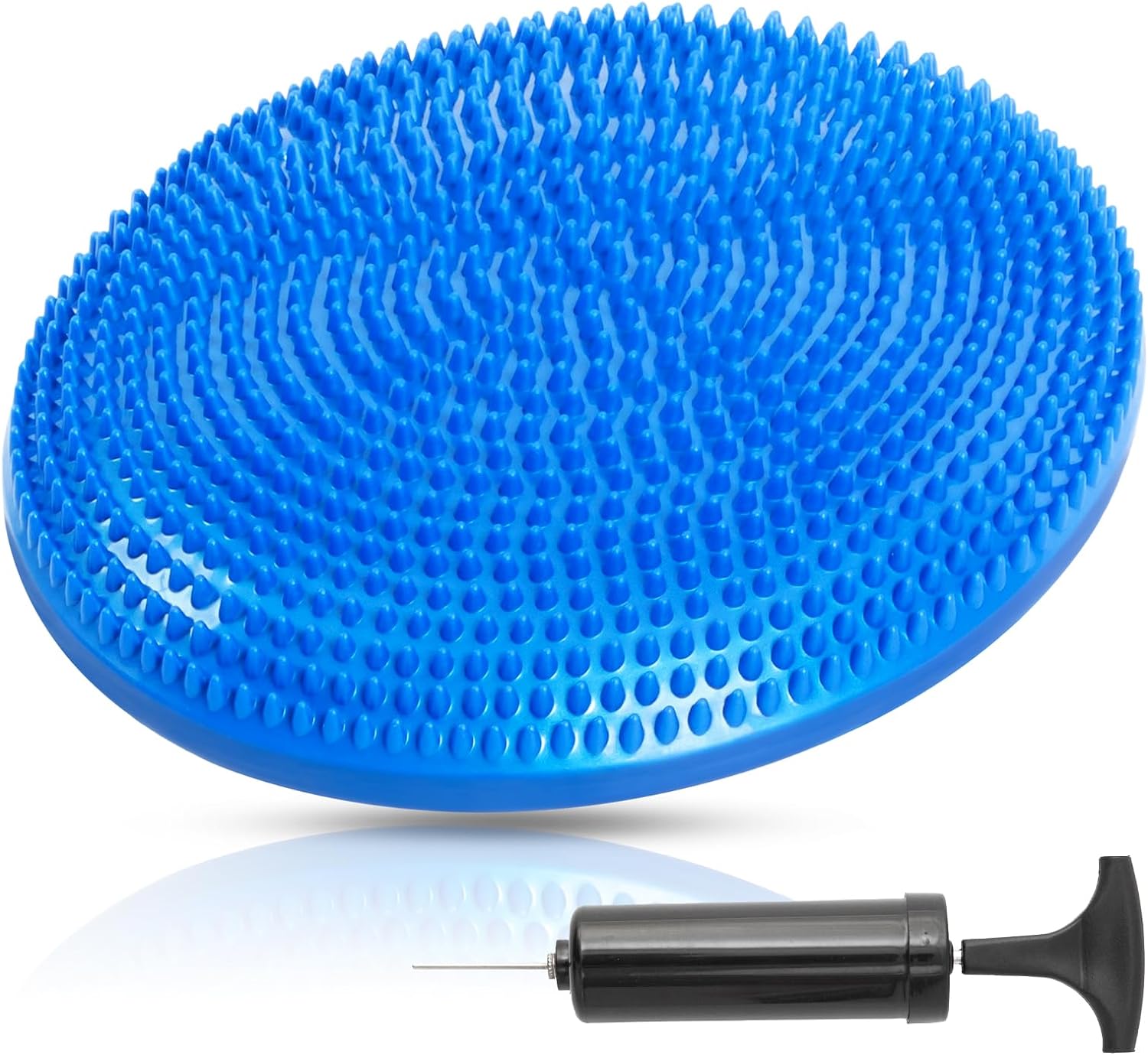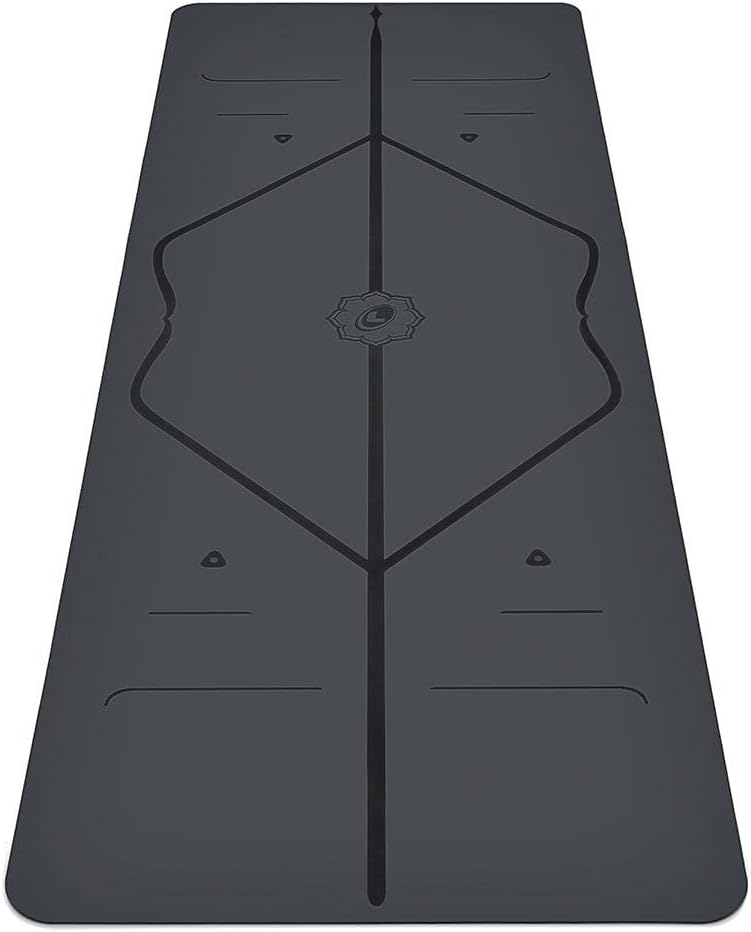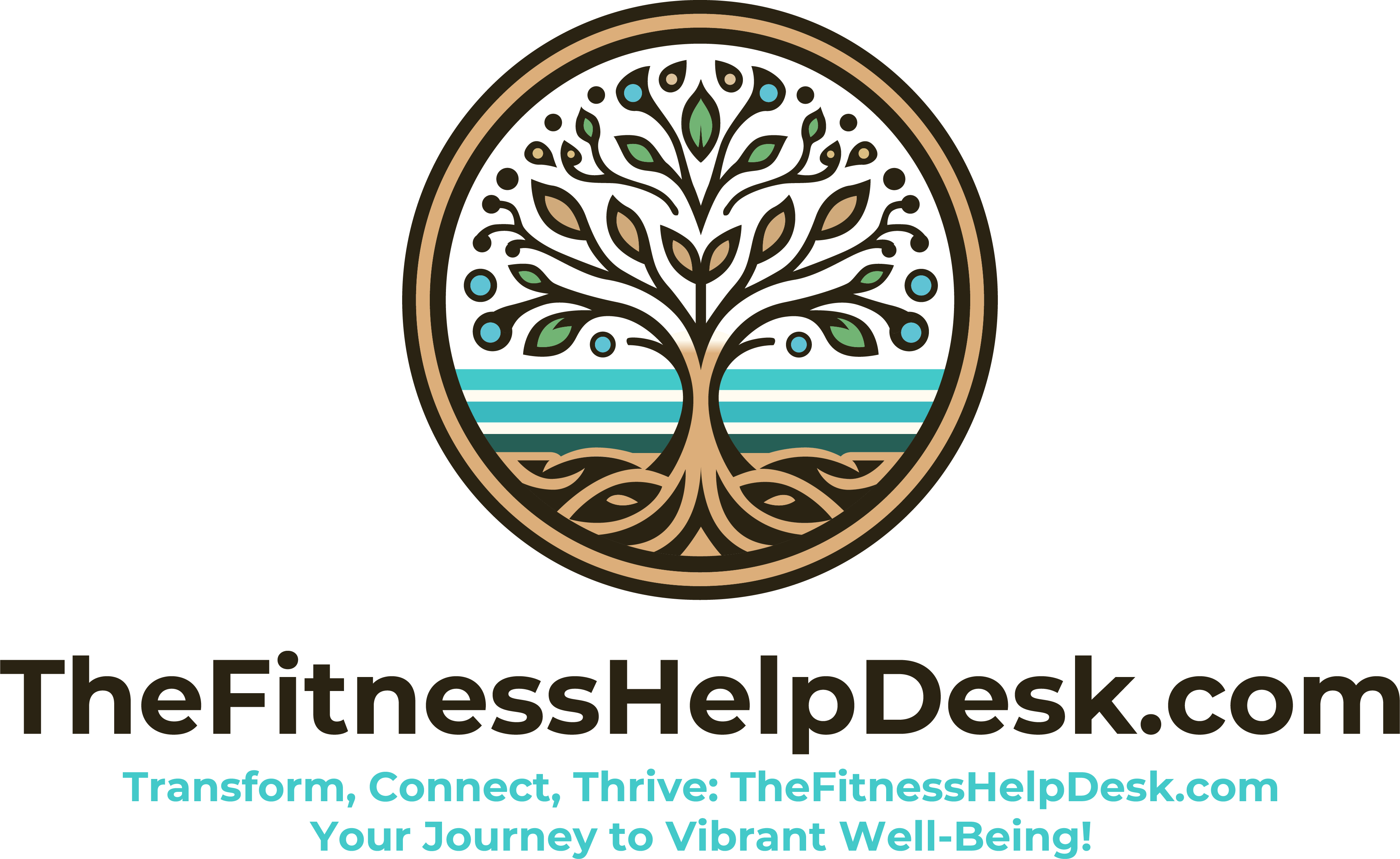Introduction: Embracing the Gentle Power of Tai Chi
As we age, finding low-impact exercises that promote health and well-being becomes increasingly important. Tai Chi, a gentle form of martial arts originating from ancient China, has gained immense popularity among seniors worldwide due to its numerous health benefits. This guide delves into why Tai Chi is particularly beneficial for seniors, offering an array of advantages from enhancing muscle strength and flexibility to boosting mental health and improving cardiovascular conditions. Whether you’re a senior looking to maintain independence and mobility or simply seeking a new way to manage stress and enhance cognitive function, the tai chi benefits are both significant and accessible.
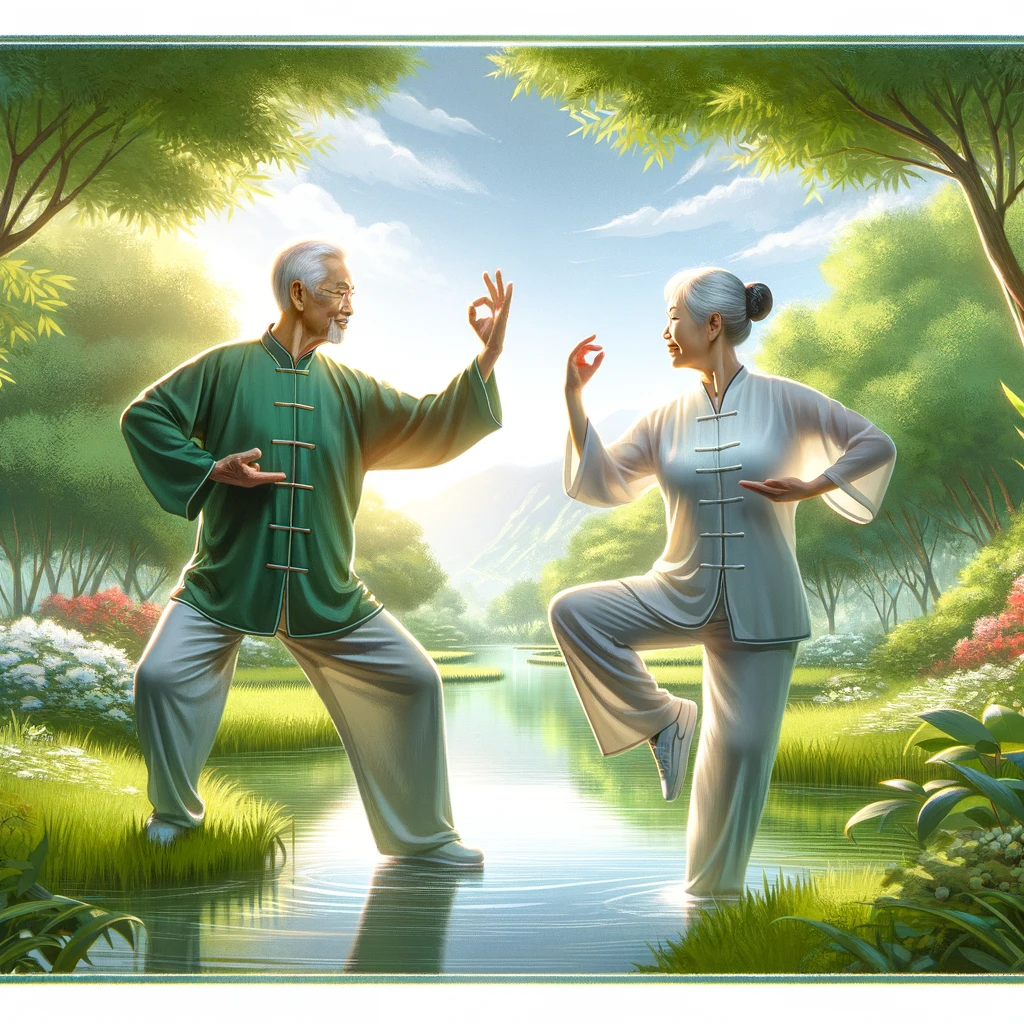
- Tai Chi, an ancient Chinese martial art known for its slow and graceful movements, is increasingly recognized for the significant health benefits it offers, especially for seniors.
- In this comprehensive guide, we will explore the various tai chi benefits that can help improve the quality of life for older adults, focusing on enhancing health and mobility.
- This post is designed to inform and motivate seniors looking to integrate this gentle exercise into their routines.
Understanding Tai Chi and Its Growing Popularity Among Seniors
Tai Chi, with its origins in ancient China, has transcended cultural and geographical boundaries to become a beloved practice worldwide, particularly among the senior population. This practice involves sequences of slow, controlled movements that are designed to align and calm the body and mind. As populations age and the search for gentle, effective forms of exercise intensifies, Tai Chi has emerged as a leading choice for seniors seeking to maintain or improve their health.
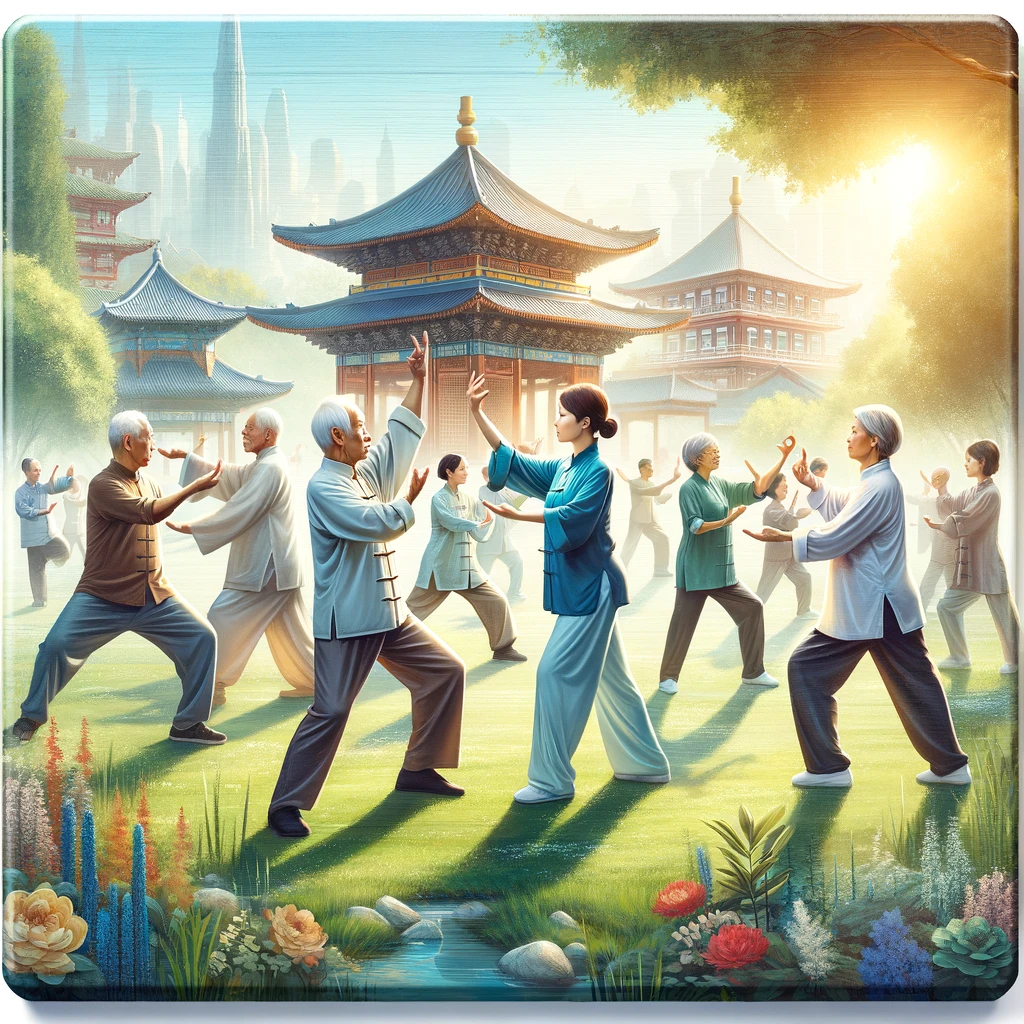
Its popularity is fueled not only by its health benefits but also by its accessibility. Tai Chi can be practiced almost anywhere, requires no special equipment, and can be adapted to fit the physical capabilities of virtually any practitioner, making it a practical option for seniors with varying levels of mobility and fitness.
What Makes Tai Chi Ideal for Seniors?
Accessibility and Adaptability
Tai Chi is exceptionally well-suited for seniors due to its gentle nature and adaptable methodology. Movements can be performed standing or seated, accommodating those with limited mobility or balance issues.
Holistic Health Benefits
Unlike more strenuous forms of exercise that might stress or overexert aging bodies, Tai Chi provides a comprehensive workout that balances the development of muscle strength with the enhancement of flexibility and mental focus. This holistic approach helps manage or prevent various age-related conditions, making it an integral part of senior health regimens.
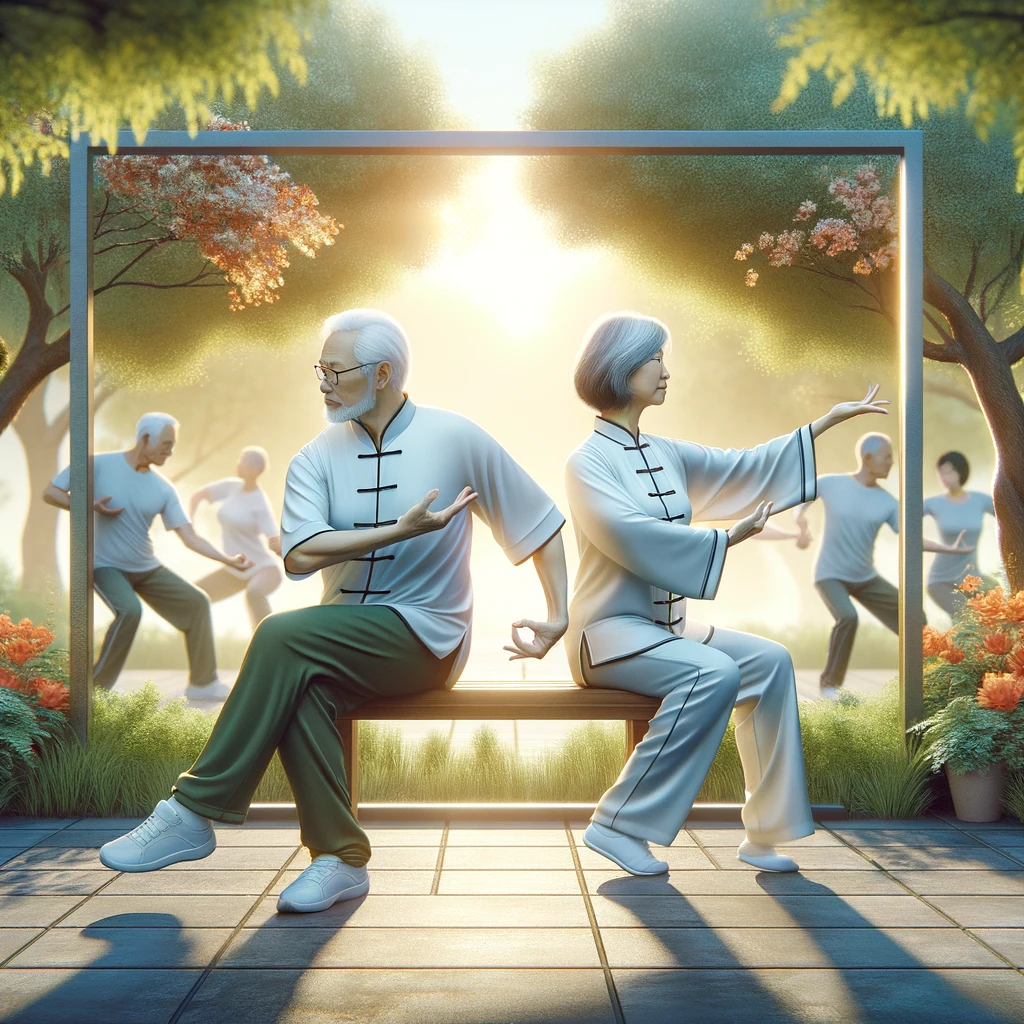
Social Engagement
- Practicing Tai Chi often involves group classes, providing a social outlet that is crucial for mental health and emotional well-being. These classes create a sense of community and shared experience, which can be particularly valuable for seniors who often face social isolation.
- These aspects of Tai Chi not only make it ideal for seniors but also contribute to its growing popularity. As awareness of its benefits increases, more seniors are turning to Tai Chi to enhance their quality of life and maintain their independence as they age.
Key Tai Chi Benefits for Seniors
Enhanced Muscle Strength and Flexibility
Tai Chi offers an exceptional approach to enhancing both muscle strength and flexibility, especially beneficial for seniors. This martial art focuses on slow, controlled movements that not only prevent muscle atrophy but also significantly enhance joint health. Here are more in-depth benefits:
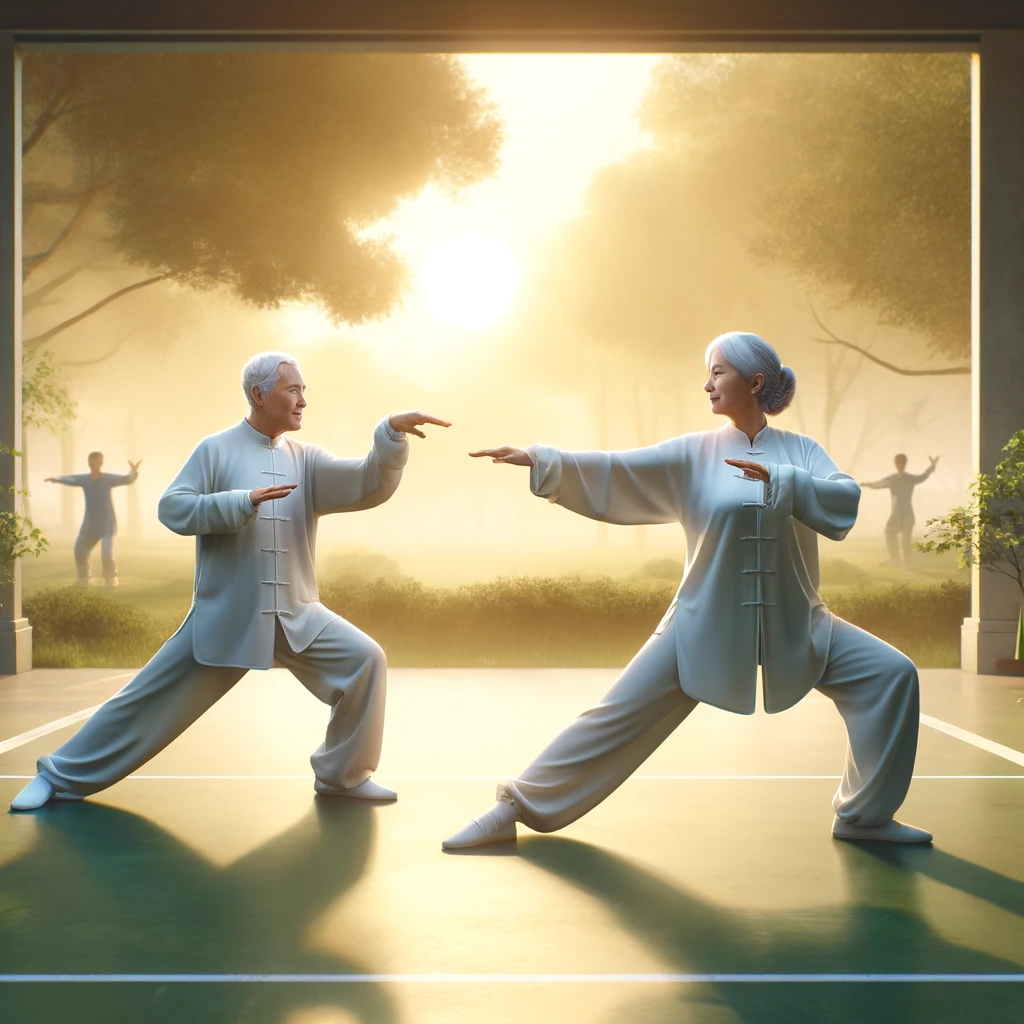
- Gradual Muscle Strengthening: Tai Chi’s gentle resistance movements help build muscle strength progressively, which is vital for aging bodies prone to muscle loss.
- Improvement in Mobility: By regularly practicing Tai Chi, seniors can improve their joint flexibility and range of motion, which are essential for performing daily activities smoothly.
- Stability and Balance: The exercises strengthen the core and lower body, which are fundamental in maintaining balance and preventing falls, a common concern for the elderly.
- Enhanced Agility: Regular Tai Chi practice can lead to improvements in agility, helping seniors move more gracefully and avoid injuries.
- Long-term Independence: Maintaining muscle strength and flexibility aids in prolonging seniors’ independence, allowing them to perform everyday tasks without assistance.
Improved Cardiovascular Health
Tai Chi is particularly effective in enhancing cardiovascular health among seniors. Its slow, flowing movements paired with deep, controlled breathing work together to improve heart function and circulation. Detailed benefits include:
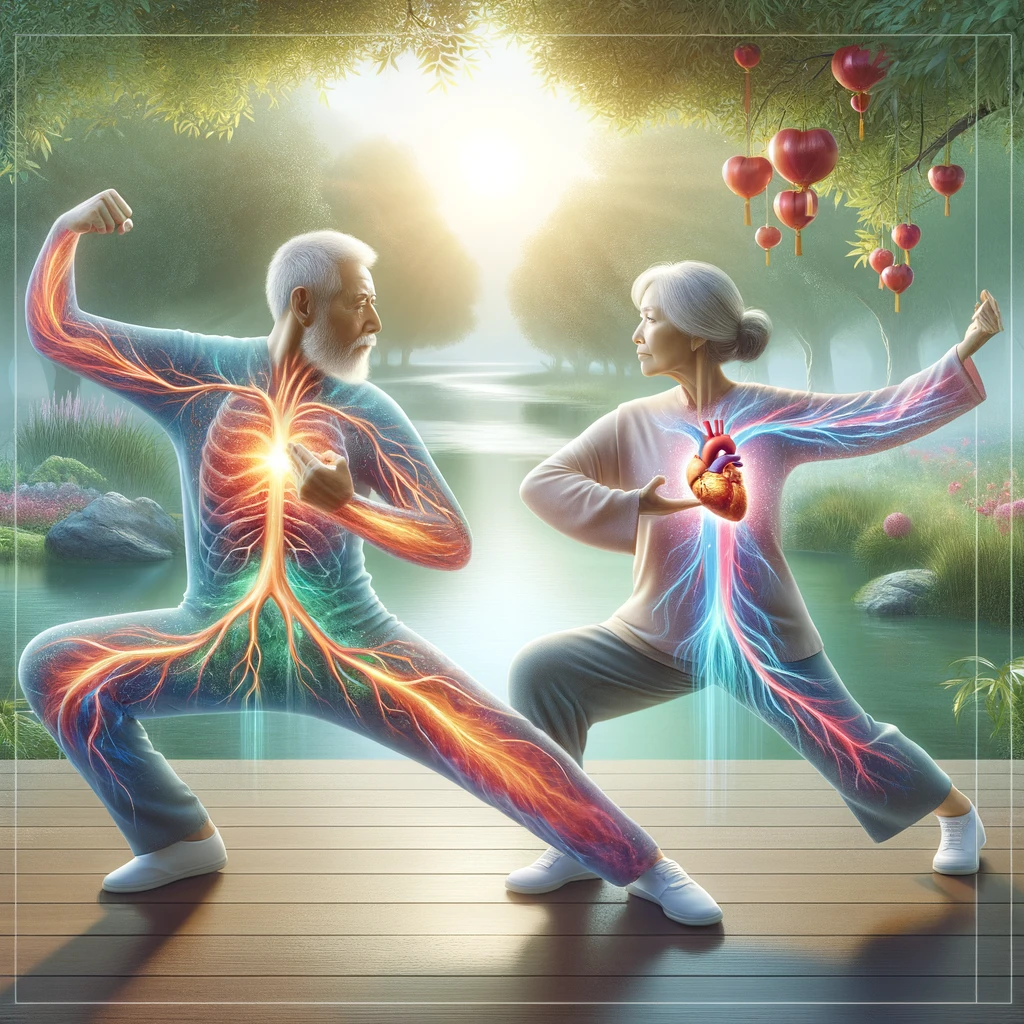
- Enhanced Circulation: The gentle physical activity increases blood flow, crucial for transporting oxygen and nutrients to the tissues.
- Lower Blood Pressure: Studies have shown that regular Tai Chi practice can help reduce systolic and diastolic blood pressure, which is especially beneficial for those with hypertension.
- Stress Reduction: The meditative aspects of Tai Chi help in lowering stress levels, which is directly linked to better cardiovascular health.
- Increased Heart Efficiency: Regular practice helps in making the heart more efficient, a significant factor in preventing heart disease.
- Reduction of Cholesterol Levels: Engaging in Tai Chi can also help in managing cholesterol levels, further protecting against cardiovascular diseases.
Better Mental Health and Cognitive Function
Tai Chi significantly benefits mental health and cognitive function, making it an excellent choice for seniors concerned about brain health:
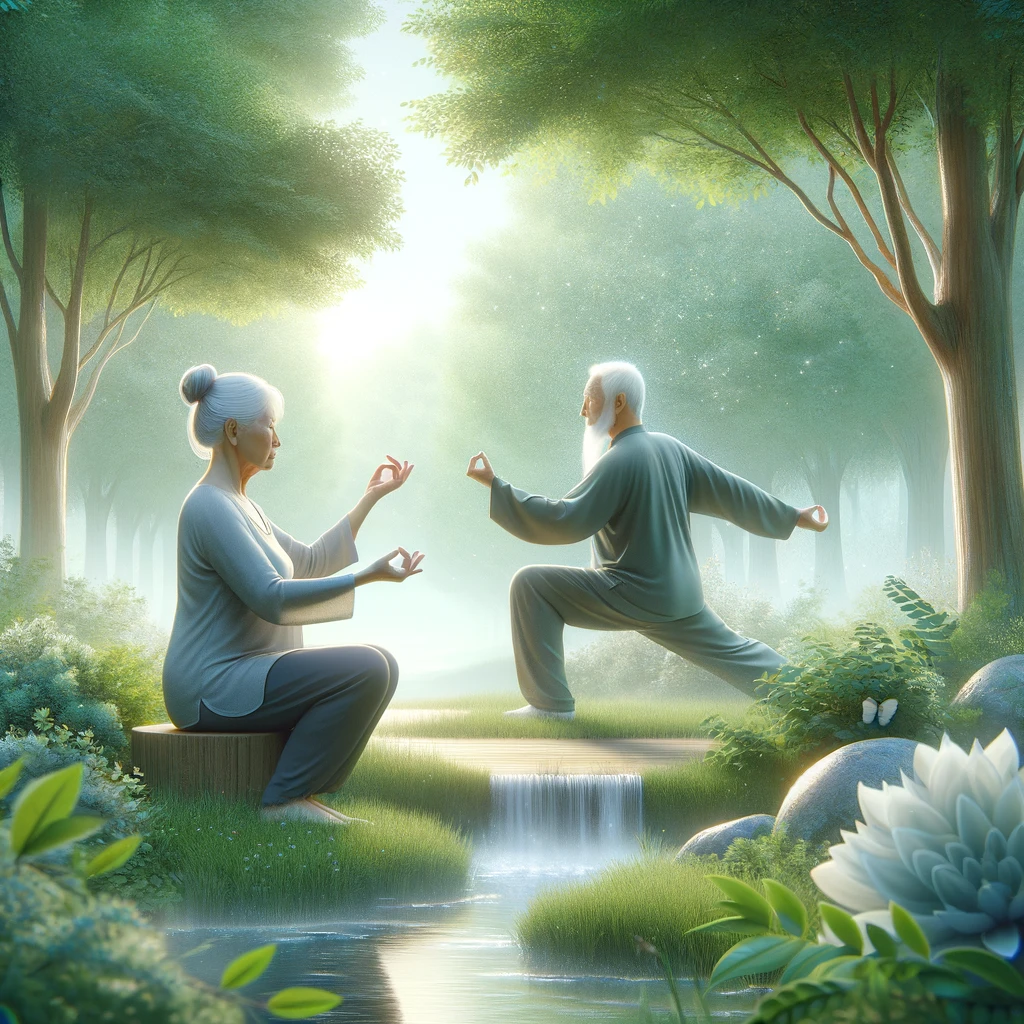
- Stress and Anxiety Reduction: The calming movements of Tai Chi are very effective in reducing stress and anxiety, promoting a state of mental calmness.
- Cognitive Maintenance: Regular mental engagement during Tai Chi helps keep the brain active and sharp, which is crucial in slowing cognitive decline associated with aging.
- Enhanced Neuroplasticity: The practice of Tai Chi can enhance neuroplasticity, the brain’s ability to form new neural connections, improving overall cognitive capabilities.
- Emotional Well-being: Tai Chi fosters emotional stability and can decrease the incidence of mood disorders such as depression by enhancing overall mood and outlook.
- Improved Sleep Patterns: The relaxation and stress relief provided by Tai Chi can contribute to better sleep patterns, which is essential for cognitive and emotional health.
Pain Management
Managing pain effectively is crucial for maintaining quality of life in senior years, and Tai Chi offers a holistic approach:
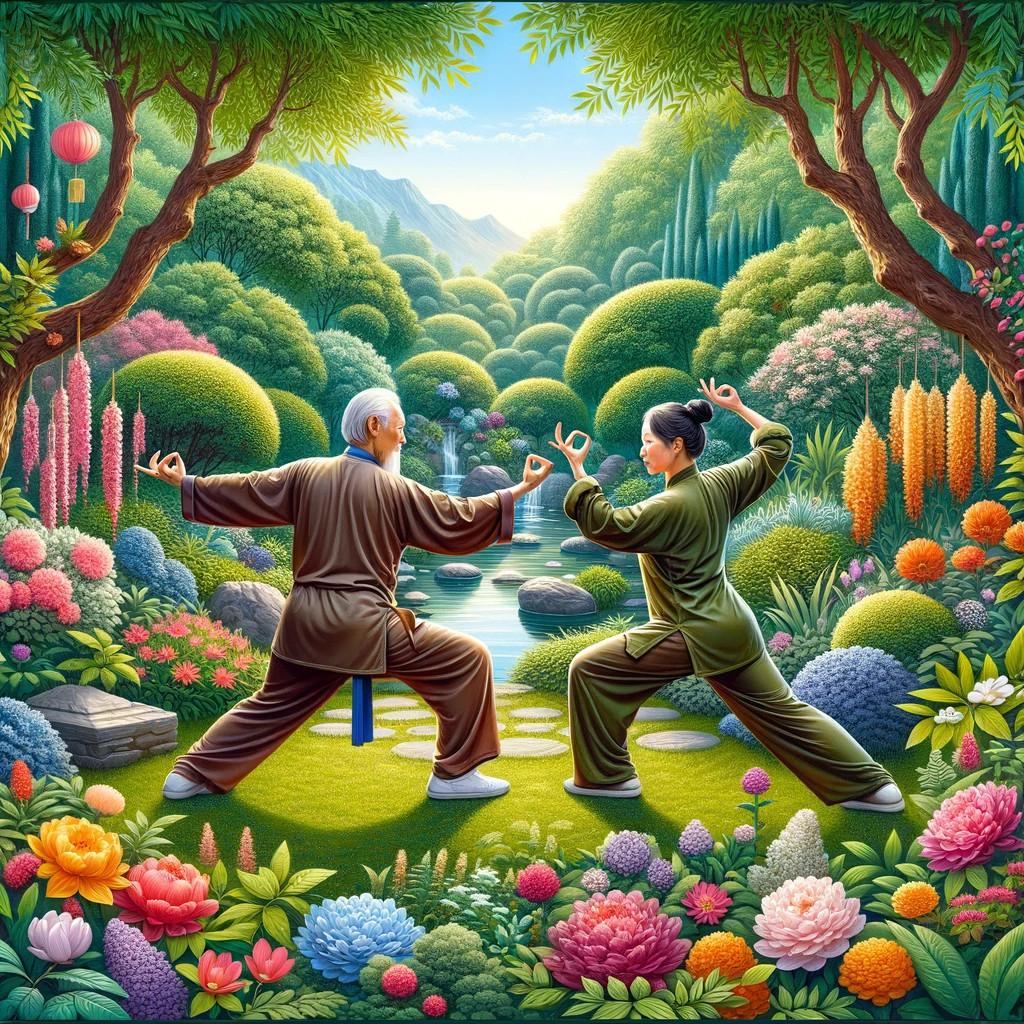
- Reduction in Joint Pain: The low-impact nature of Tai Chi makes it ideal for easing pain in the joints without exacerbating existing conditions.
- Improved Pain Threshold: With regular practice, seniors often report increased tolerance to pain, as Tai Chi enhances pain management skills.
- Holistic Pain Relief: Tai Chi addresses pain not just physically but also mentally and emotionally through its integrated approach involving movement, focus, and controlled breathing.
- Decreased Inflammation: The movements help reduce inflammation, which is often a significant contributor to pain.
- Enhanced Recovery from Injury: For seniors recovering from physical injuries, Tai Chi can be a gentle way to rehabilitate and strengthen the body without the risk of re-injury.
Engaging in Tai Chi: Practical Steps for Seniors
Integrating Tai Chi into daily life can be a rewarding endeavor for seniors looking to improve their overall health and wellness. Here are practical steps to help seniors begin and sustain a Tai Chi practice:
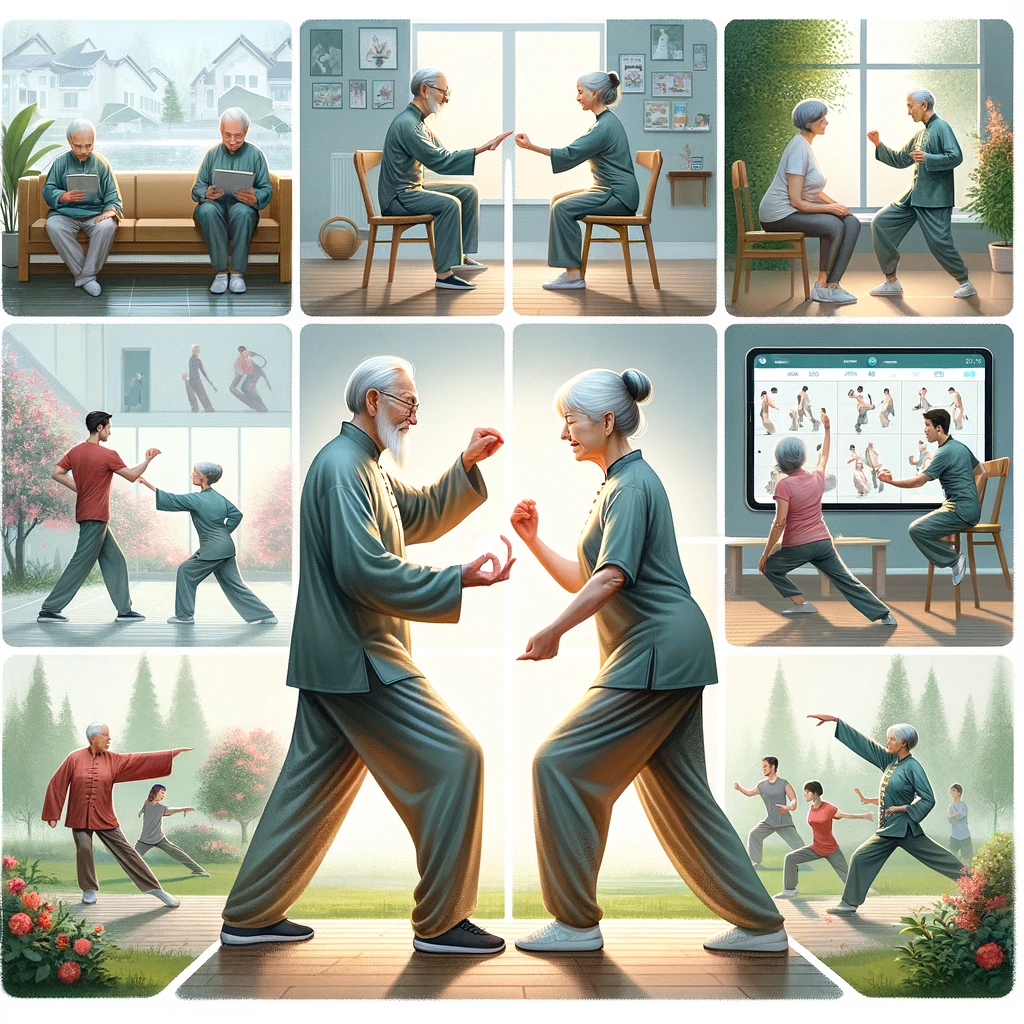
- Finding the Right Instructor: Choosing a qualified Tai Chi instructor who has experience working with seniors is crucial. An instructor can tailor exercises to fit individual mobility levels and health conditions, ensuring safety and effectiveness.
- Selecting an Appropriate Class: Many community centers, gyms, and senior centers offer Tai Chi classes specifically designed for older adults. These classes focus on movements that are beneficial for aging bodies, emphasizing gentle motion and balance.
- Starting Slowly: For those new to Tai Chi, it’s important to start slowly. Begin with short sessions, perhaps 10 to 15 minutes, and gradually increase the duration as comfort and stamina improve.
- Regular Practice: Consistency is key in Tai Chi. Regular practice, even if it’s just a few times a week, can lead to significant health improvements. Setting a regular schedule can help make Tai Chi a habit.
- Utilizing Online Resources: For seniors who prefer to practice at home or who have limited access to in-person classes, there are numerous online Tai Chi tutorials and videos specifically aimed at seniors. These resources make learning and practicing Tai Chi more accessible.
- Incorporating Tai Chi into Daily Routine: Tai Chi doesn’t always have to be a separate part of the day. Integrating it into daily routines, like practicing movements while waiting for the kettle to boil or during TV commercials, can make it a seamless part of life.
- Setting Achievable Goals: Having clear, achievable goals can motivate seniors to stick with Tai Chi. Whether it’s improving balance, managing pain, or simply gaining more flexibility, clear objectives can provide direction and a sense of accomplishment.
- Engaging with a Tai Chi Community: Many find that being part of a Tai Chi community enhances their commitment and enjoyment. Whether it’s a local group or an online forum, connecting with others who practice Tai Chi can provide support and encouragement.
These practical steps can help seniors not only start practicing Tai Chi but also integrate it into their lifestyles in a meaningful way, allowing them to fully experience the myriad of health benefits that Tai Chi offers.
Motivational Insights and Stories
Incorporating stories of seniors who have experienced transformative effects from practicing tai chi can serve as a great motivation. For instance, John, a 72-year-old retiree, found that after six months of tai chi, his balance improved noticeably, and he felt more agile and less anxious.
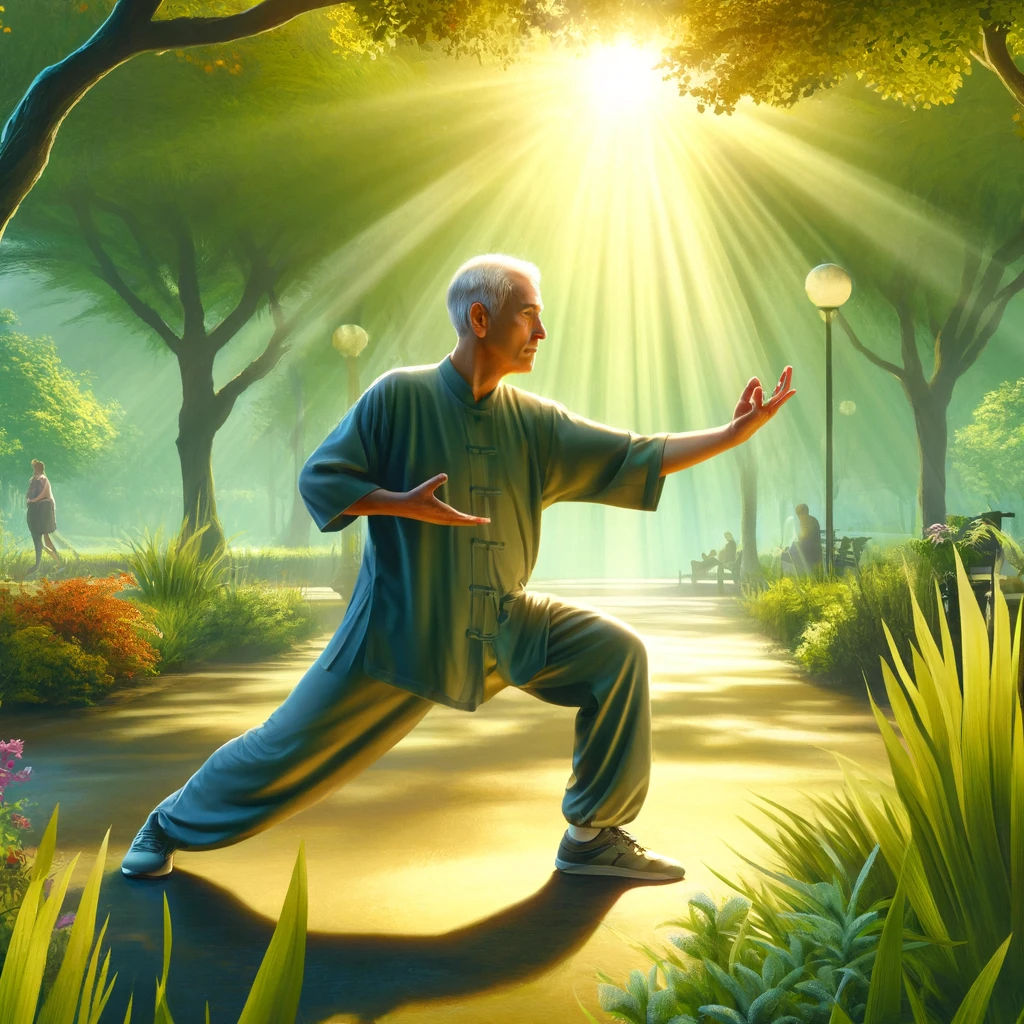
Quote to Inspire:
“Tai Chi does not only strengthen the body, it fortifies the spirit and lightens the heart.” – A Tai Chi Master
Conclusion: Why Tai Chi is a Wise Choice for Seniors
Tai Chi offers a holistic approach to maintaining health and wellness in senior years. Its gentle nature makes it accessible to seniors of all fitness levels and its benefits, ranging from physical enhancements to mental well-being and pain management, are substantial. By incorporating Tai Chi into their daily routines, seniors can not only improve their physical and mental health but also enhance their quality of life, maintaining independence and vitality for years to come.
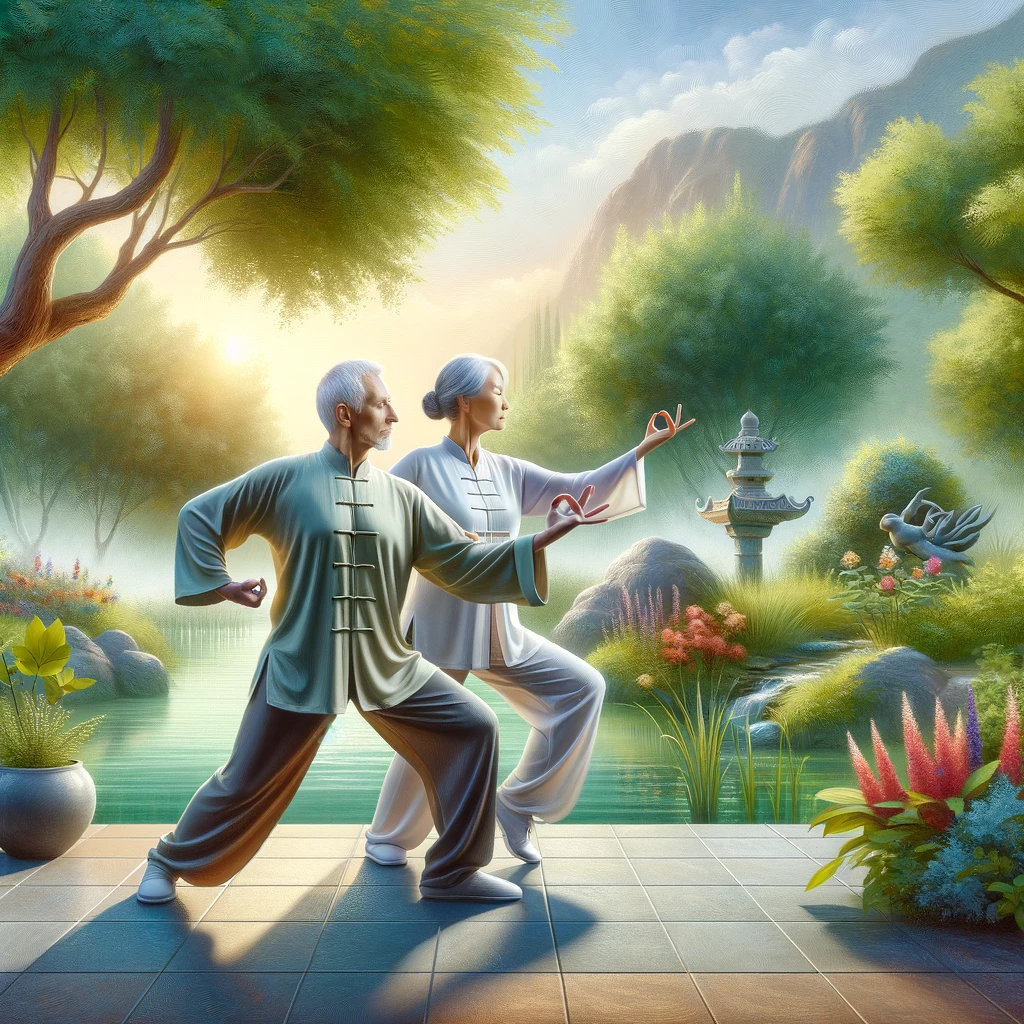
For those interested in beginning their Tai Chi journey, it’s important to start with the right resources and guidance. At The Fitness Help Desk, we provide a wealth of information and support for seniors looking to integrate Tai Chi and other beneficial practices into their lives. Our resources, combined with expert advice from seasoned professionals like Steve Allison, ensure that seniors receive the support they need to make informed decisions about their health and fitness.
About the Author
Steve Allison is an experienced personal trainer and nutrition specialist for seniors, with extensive experience and certifications from the National Academy of Sports Medicine (NASM). His expertise is dedicated to enhancing the lives of older adults through tailored exercise and nutrition strategies, helping them achieve their health and fitness goals. Explore more about how tailored fitness programs can benefit you by visiting our website at The Fitness Help Desk.

